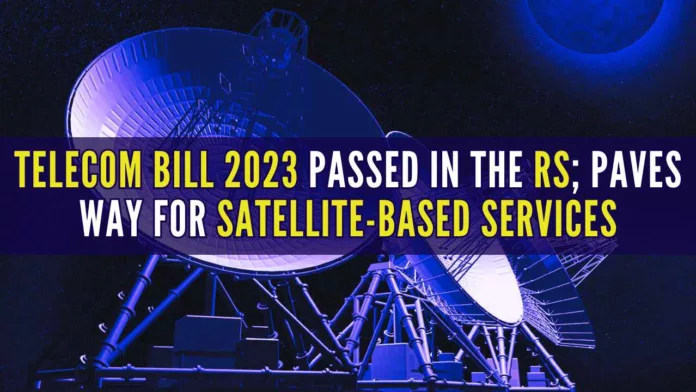
The new Telecommunications Bill 2023 paves way for Musk’s Starlink & others
On Thursday, through a voice note, the Rajya Sabha passed the Telecommunications Bill 2023 through a voice vote, just a day after it was passed in the Lok Sabha.
The bill was introduced by Union IT Minister Ashwini Vaishnaw.
According to TechCrunch, the new bill allows spectrum allocation for satellite-based services without the need to participate in auctions — a move to favour companies such as OneWeb, Elon Musk‘s Starlink, and Amazon‘s Kuiper.
These companies are all keen to launch satellite broadband services in the world’s largest country and have long favoured an administrative process instead of auctions for spectrum allocation.
The bill, which eliminates the regulations that have been in place since the telegraph era dating back to 1885, provides the government with the authority to use and manage telecommunications services and networks, as well as track traffic data in the interest of national security, the report said.
The legislation also maintains the provision for the government to intercept communications.
Provisions of the Bill
The Bill, introduced by Union IT Minister Ashwini Vaishnaw, includes a focus on creating robust telecom networks through a well-defined Chapter on RoW, including granting of RoW in a non-discriminatory manner and clarifying that this network shall not be considered for the purposes of tax, levy, cess, fees or duties on that property.
To reduce fraud, the bill also mandates biometric authentication for customers and limits the amount of SIM cards any subscriber can use.
It also includes civil penalties of up to $12,000 for violating specified sections and up to $6,00,400 for violating the terms and circumstances defined in the law.
[With Inputs from IANS]
For all the latest updates, download PGurus App.










